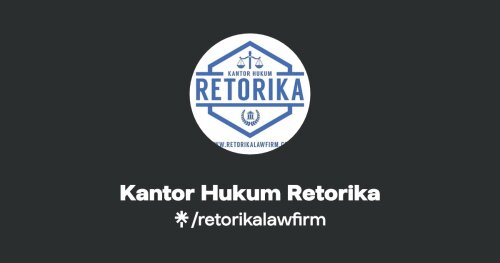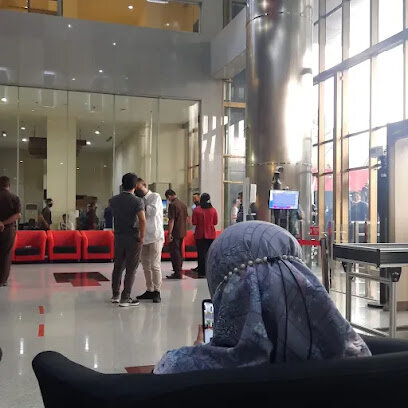Best Bankruptcy & Debt Lawyers in Indonesia
Share your needs with us, get contacted by law firms.
Free. Takes 2 min.
Or refine your search by selecting a city:
List of the best lawyers in Indonesia
Indonesia Bankruptcy & Debt Legal Questions answered by Lawyers
Browse our 1 legal question about Bankruptcy & Debt in Indonesia and read the lawyer answers, or ask your own questions for free.
- Seeking Legal Assistance for Debt Recovery Based on Signed Business Agreement in Indonesia
- I am a Singapore citizen seeking legal assistance in Indonesia to recover an outstanding debt arising from a signed business cooperation agreement. The other party has failed to fulfill their financial obligations as stated in the agreement. I have the signed contract (“Perjanjian Kerjasama”) and all evidence of communication and... Read more →
-
Lawyer answer by OPRICHTER Legal Network
Dear Client, Thank you for reaching out, we set out below our response for your easy reference 1. Enforceability of the Agreement Yes, the Perjanjian Kerjasama is legally valid and can be used as strong evidence in any legal process....
Read full answer
About Bankruptcy & Debt Law in Indonesia
The Bankruptcy & Debt Law in Indonesia is primarily governed by Law No. 37 of 2004 concerning Bankruptcy and Suspension of Debt Repayment Obligations (PKPU). This legal framework provides mechanisms for businesses and individuals who are unable to meet their financial liabilities as they fall due. The Indonesian bankruptcy process is designed to address insolvency, which includes reorganizing or liquidating debtor assets to repay creditors. The law applies to both individuals and companies and aims to balance the interests of debtors with their creditors to maintain economic stability and safeguard all parties' interests within the Indonesian economic landscape.
Why You May Need a Lawyer
Engaging a lawyer specializing in Bankruptcy & Debt can be crucial in navigating the complex waters of financial distress. Common scenarios where legal expertise is beneficial include:
- Assistance in filing for bankruptcy or seeking PKPU.
- Negotiation and restructuring of debt agreements with creditors.
- Representation in court for bankruptcy proceedings.
- Ensuring compliance with legal requirements and regulations during insolvency proceedings.
- Protection of assets and rights during a bankruptcy case.
- Advising on alternatives to bankruptcy to protect one's business or personal finances.
Having knowledgeable legal counsel can help you make informed decisions and safeguard your rights throughout the process.
Local Laws Overview
Bankruptcy and debt procedures in Indonesia are dictated by several key principles and requirements:
- Bankruptcy Petition: A petition may be filed either by the debtor or the creditor at the Commercial Court.
- Insolvency Test: A debtor is declared bankrupt if they have at least two creditors and fail to pay at least one due and payable debt.
- Stay Period: During a bankruptcy declaration, a "stay" or suspension is applied to nearly all execution actions by creditors against the debtor’s assets.
- Role of Receiver: A court-appointed receiver manages the debtor's assets, aiming to maximize repayment to creditors.
- Debt Restructuring (PKPU): Offers temporary protection from creditors while a plan is developed to resolve and reorganize outstanding debt.
- Priority of Claims: Legal provisions outline the order in which creditors are paid, typically prioritizing secured creditors and employees.
The complexity of these laws underscores the importance of understanding specific procedures and timelines involved in bankruptcy and debt resolutions.
Frequently Asked Questions
What constitutes as "insolvency" under Indonesian law?
Insolvency, as per Indonesian law, is when a debtor fails to pay at least one due and payable debt to one of its creditors while having at least two creditors.
Is it possible for an individual to file for bankruptcy in Indonesia?
Yes, both individuals and corporations can file for bankruptcy in Indonesia if they meet the insolvency criteria.
How long does the bankruptcy process typically take?
The duration of a bankruptcy process can vary. Generally, it starts with a petition and can take several months, depending on whether the case moves into liquidation or restructuring.
What is the role of a receiver in Indonesian bankruptcy?
A receiver is responsible for managing the debtor’s assets and working to ensure creditors are paid as fairly and promptly as possible during a bankruptcy proceeding.
Can bankruptcy be avoided through negotiation or mediation with creditors?
Yes, debtors can negotiate settlement terms with creditors, or undergo mediation which might lead to restructuring the debt, thus avoiding bankruptcy.
In what order are creditors paid in bankruptcy cases?
Secured creditors have the highest priority, followed by preferential debts such as employee wages, and finally unsecured creditors are paid from any remaining assets.
How does a PKPU differ from bankruptcy?
A PKPU is focused on restructuring debts and can offer temporary debt repayment suspension, whereas bankruptcy often leads to liquidation of assets to pay creditors.
Is it mandatory to hire a lawyer for bankruptcy filings?
While not mandatory, hiring a legal professional is highly advisable to adequately navigate the complexities of bankruptcy law and proceedings.
What language are bankruptcy proceedings conducted in?
Bankruptcy proceedings in Indonesia are conducted in the Indonesian language.
Are foreign companies subject to Indonesian bankruptcy laws?
Yes, if a foreign company has a business presence in Indonesia, it can be subject to Indonesian bankruptcy laws.
Additional Resources
For those seeking more information or assistance with Bankruptcy & Debt issues in Indonesia, consider reaching out to:
- Indonesian Ministry of Law and Human Rights: Provides resources and publications on legal matters.
- The Commercial Court: Handles bankruptcy cases and can provide relevant procedural information.
- Bank Indonesia: Offers financial guidance and support services regarding debt management.
- Legal Aid Organizations: Such as LBH Jakarta and YLBHI, can offer legal counsel for individuals in need.
- Indonesian Advocates Association (PERADI): Can connect individuals with accredited lawyers specializing in bankruptcy.
Next Steps
If you find yourself needing legal assistance related to Bankruptcy & Debt in Indonesia, consider the following steps:
- Consultation: Schedule an initial consultation with a lawyer specializing in bankruptcy and debt law to assess your situation.
- Documentation: Gather all relevant financial documents, contracts, and correspondence with creditors to share with your legal counsel.
- Evaluation: Work with your lawyer to evaluate options such as debt restructuring or formal bankruptcy proceedings.
- Strategy: Develop a legal strategy that aligns with your financial goals and personal circumstances.
- Action: Follow through with the recommended legal actions and keep communication lines open with your lawyer.
Engaging competent legal help can provide clarity and guide you towards a viable solution in managing financial challenges effectively.
Lawzana helps you find the best lawyers and law firms in Indonesia through a curated and pre-screened list of qualified legal professionals. Our platform offers rankings and detailed profiles of attorneys and law firms, allowing you to compare based on practice areas, including Bankruptcy & Debt, experience, and client feedback.
Each profile includes a description of the firm's areas of practice, client reviews, team members and partners, year of establishment, spoken languages, office locations, contact information, social media presence, and any published articles or resources. Most firms on our platform speak English and are experienced in both local and international legal matters.
Get a quote from top-rated law firms in Indonesia — quickly, securely, and without unnecessary hassle.
Disclaimer:
The information provided on this page is for general informational purposes only and does not constitute legal advice. While we strive to ensure the accuracy and relevance of the content, legal information may change over time, and interpretations of the law can vary. You should always consult with a qualified legal professional for advice specific to your situation.
We disclaim all liability for actions taken or not taken based on the content of this page. If you believe any information is incorrect or outdated, please contact us, and we will review and update it where appropriate.
Browse bankruptcy & debt law firms by service in Indonesia
Indonesia Attorneys in related practice areas.
Browse bankruptcy & debt law firms by city in Indonesia
Refine your search by selecting a city.

















